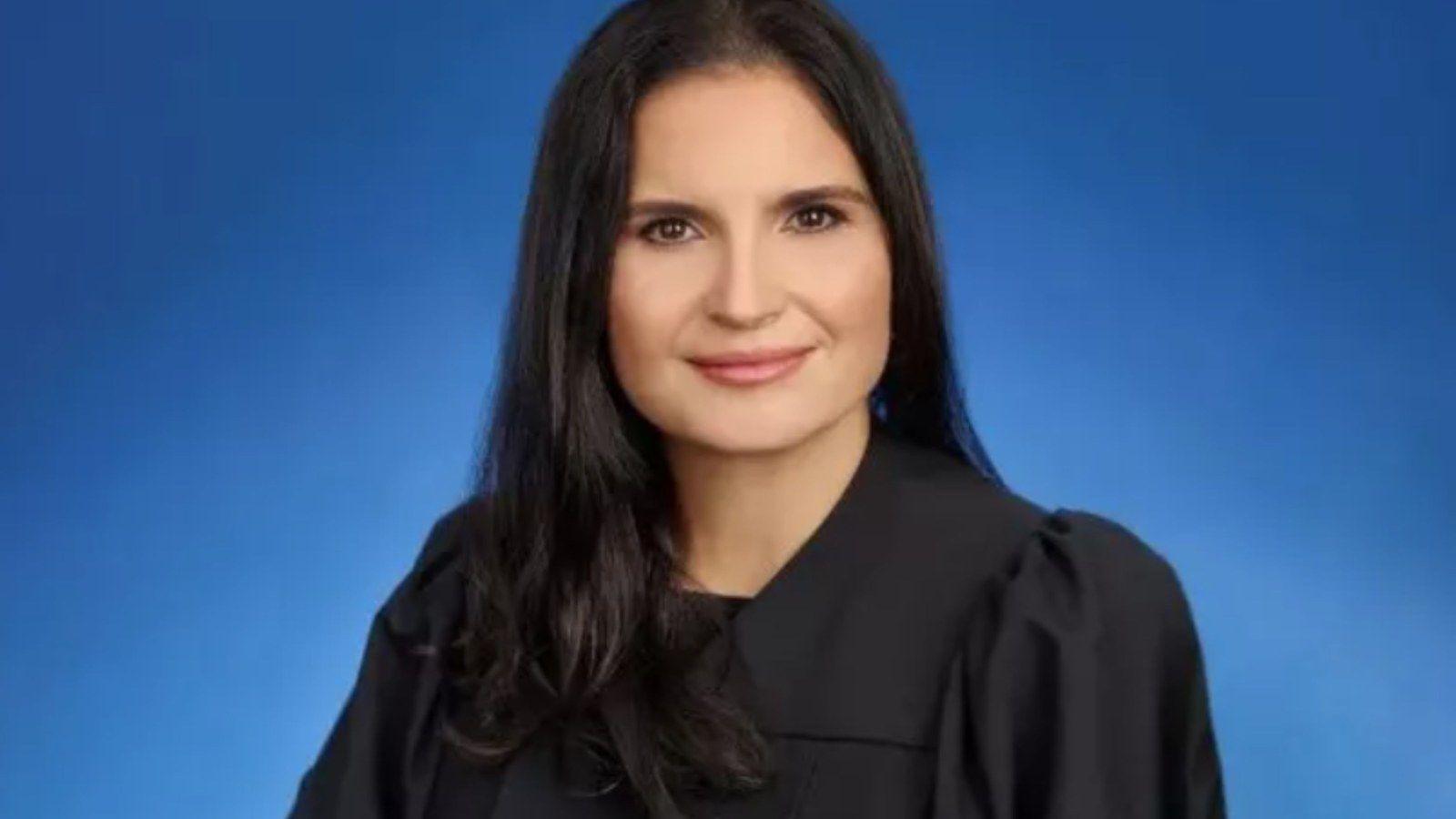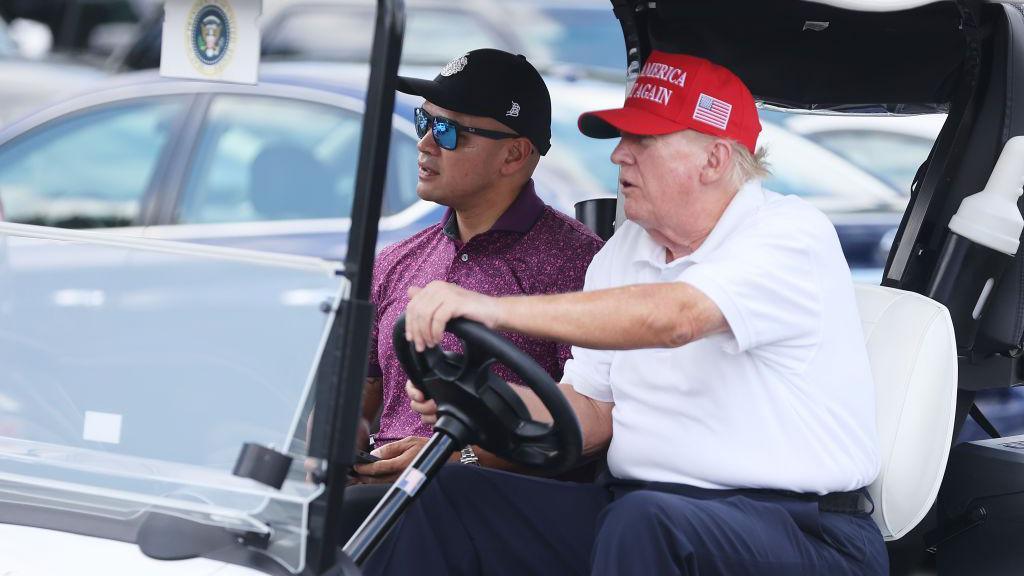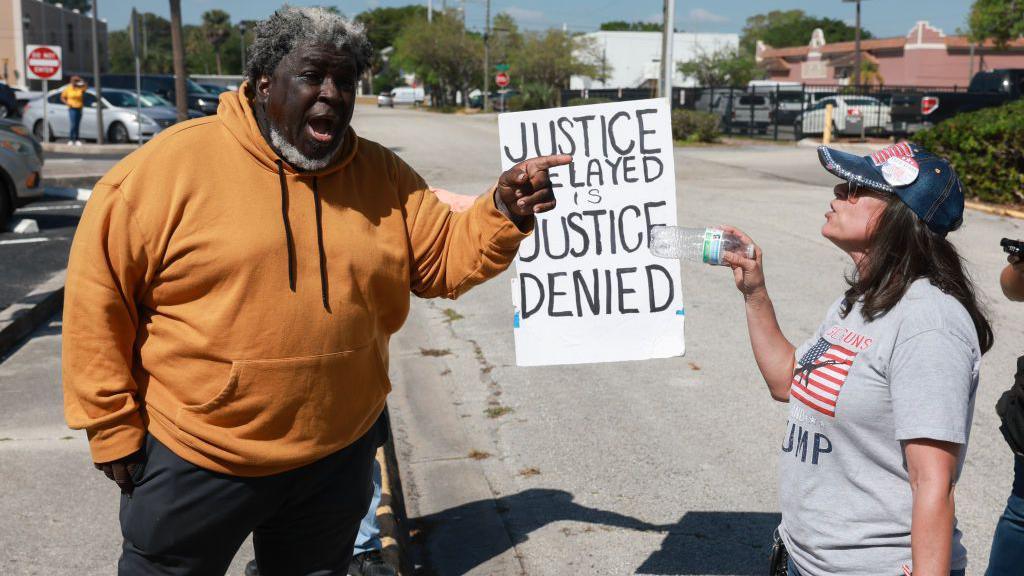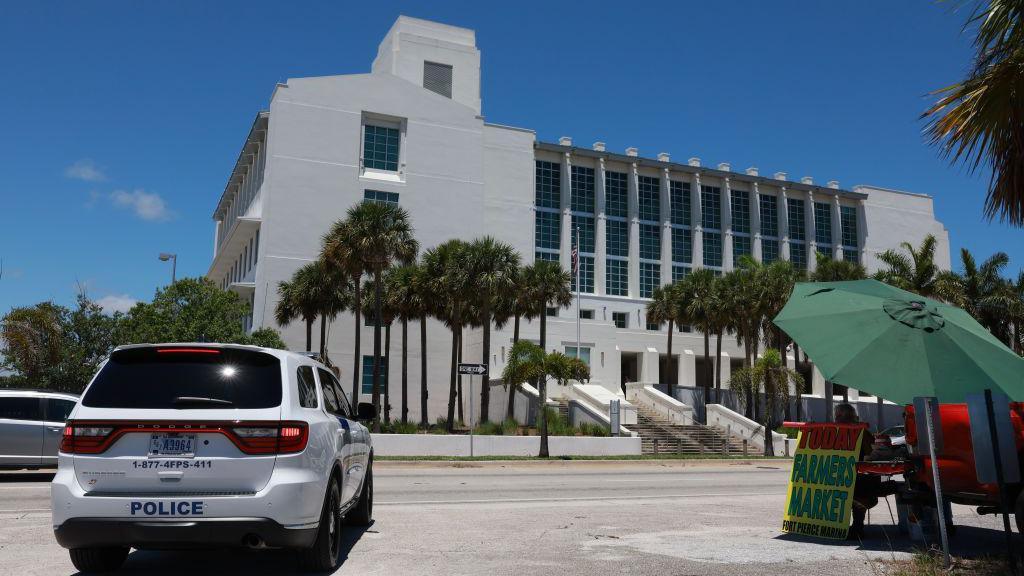Judge Cannon, and the Trump trial going nowhere fast

Critics say Judge Aileen Cannon has indulged Trump's delay tactics
- Published
The Florida district judge overseeing Donald Trump's classified documents trial is facing scrutiny over a series of controversial rulings related to the case.
Judge Aileen Cannon has already been under fire for delaying the trial, almost ensuring that it will not happen before November’s election. If Trump wins and retakes the White House, he could order the Justice Department to drop the case.
Now she is facing criticism for considering arguments that could scupper the trial itself.
Trump has argued that Special Counsel Jack Smith – who has brought charges against him in Florida and Washington – was unlawfully appointed.
Critics argue Judge Cannon, an inexperienced Trump appointee, has made rulings favourable to him and taken too long to settle pre-trial matters.
A guide to Trump's four criminal cases
- Published28 August 2024
Trump's Georgia election fraud case delayed for months
- Published6 June 2024
How Trump, Biden and Clinton cases compare
- Published12 June 2023
Who is Judge Cannon?
Aileen Cannon has served in the US District Court for the Southern District of Florida since 2020.
The classified documents case was randomly assigned last year to her, from a pool of four available judges.
Judge Cannon, 43 was born in Colombia, is the daughter of a Cuban exile and grew up in Miami.
She has maintained ties with the conservative Federalist Society since law school and once clerked for a conservative appeals court judge.
The Trump case is by far her most high-profile to date.
She was working on appellate matters as an assistant US attorney in Florida when she received a lifetime appointment to the federal bench from Trump in 2020.
A New York Times review, external of cases she has since overseen found only four that went to trial, all of them brief and basic court proceedings.
It reported this week, external that, shortly after she drew the Trump case last June, two of her more experienced colleagues urged her to step aside and hand it off to someone else.
They recommended a judge based closer to Miami, whose court has a secure facility that can hold sensitive files. Miami is also where the grand jury that indicted Trump had sat.
Judge Cannon works alone in Fort Pierce, two hours north of Miami, and the federal court there now includes a secure facility built at taxpayer expense.

Walt Nauta (left) is one of Trump's two co-defendants
Has she favoured Trump?

A box of classified files was found spilled over in a Mar a Lago storage room
After the FBI discovered thousands of secret files at Mar-a-Lago in August 2022, Trump sued the government over its "despicable raid" and for "illegally seizing" documents that he said were his personal property.
He demanded the court appoint a third party to sift through what had been taken.
Judge Cannon barred investigators access to the evidence and appointed a so-called "special master" to consider whether any of documents were protected under executive privilege - a legal doctrine that would prevent the government from viewing Mr Trump's documents.
She directed the special master to make his recommendations only to her, so that she could make a final decision.
These actions were later rebuked by a three-member appeals court panel, which stated Judge Cannon had tried to "create a special exception" for Trump.
Such were the optics of what she had done that Cecilia Antonaga, the chief judge in Southern District of Florida, called Judge Cannon after she was assigned the case and advised her not to oversee it, according to the New York Times, external.
She once again refused.

Much like his presidency, Trump's criminal prosecutions have split the country
Since taking the case, she has repeatedly pushed back deadlines and a trial once scheduled to begin in May now has no start date.
She has also ruled against the prosecution on several occasions and held hearings on most of the claims - including the far-fetched - from Trump's defence team.
Government attorneys have butted heads with the judge on several occasions, including at a March hearing where one urged her "to keep moving things along".
“I can assure you that in the background, there is a great deal of judicial work going on,” she replied.
“So while it may not appear on the surface that anything is happening, there is a ton of work being done.”
Judge postpones Trump's classified documents trial
- Published7 May 2024
But it is a three-day hearing that began on Friday that now poses the greatest danger to this trial.
Judge Cannon will allow arguments over whether Mr Smith was lawfully appointed as special counsel. Trump claims that he was not because the US Senate did not confirm him, while the justice department contends Attorney General Merrick Garland has the authority to appoint special counsels.
The judge will also hear a defence challenge of how Mr Smith's office has been funded, and prosecutors' request for a gag order against Trump.
She will grant argument time during these hearings to outside parties, including right-wing non-profit groups and former government officials.

Judge Cannon's court in Fort Pierce is two hours north of Miami
Can she be removed from the case?
In April, Judge Cannon denied Trump's bid to dismiss the charges against him on the basis that the classified documents were his under the Presidential Records Act.
Calls for her removal have risen, but disqualifying a federal judge from a case is not easy.
A motion from Mr Smith's team to remove her would have to be made with the judge herself.
The appellate court that oversees her court also has the authority to reassign a case, external “to preserve in the public mind the image of absolute impartiality and fairness of the judiciary".
That can happen either by the court's independent actions or at the prompting of the special counsel's team.
All three approaches will likely further delay the trial.
And with little chance now the proceedings begin before the election, a returning President Trump could simply dismiss the case by pardoning himself, firing Mr Smith or ordering his justice department to throw it out.